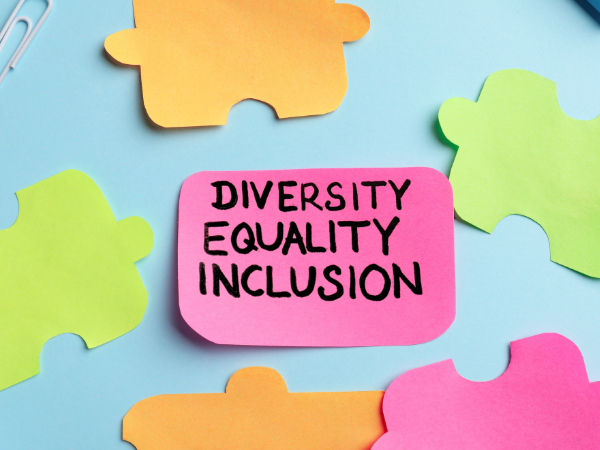A diverse and inclusive workplace is one which allows all employees to feel supported, valued and able to reach their full potential. By nurturing employees and creating an inclusive culture, a business can experience many benefits, varying from financial and business related to employee satisfaction and retention. In this article we look at the importance of diversity and inclusion in the workplace and the benefits it can bring.

Diversity means colleagues will come from a variety of different backgrounds, cultures and experiences. This can result in a very well-rounded team with different skill sets, ultimately leading to more innovation and in turn, better results. The other side of this is that employees can learn from each other and gain skills from working within a diverse team. By encouraging your recruitment team to follow a diverse strategy and hire from a variety of talent pools, your company will start to see increased innovation and skill-sharing.
The technology industry experiences the highest turnover rate, which is down to a shortage of highly skilled workers, which leads to competition between companies to recruit said employees. This is a key area where being an inclusive employer can come into play, as by creating an environment where people feel valued, included and respected, you’re more likely to retain people in turn. Tech employees will always have lots of career options to move around and change companies, so by ensuring your business culture is as good as it possibly can be, you can reduce the likelihood of higher turnover rates.
By having a more diverse workforce, you will gain more perspectives on your product and/or service. Increased innovation is one of the biggest advantages of diversity as the more backgrounds and cultures you have on your team, the more experiences and opinions you will get. Your customer base is unlikely to be one set ethnicity, gender or background, so it makes sense that the people working on the product are varied too. Forbes stated that companies with above-average diversity had a 19% innovation-related advantage over companies with below-average diversity.
Due to the competitive nature of the technology industry, it’s not only the candidates who need to sell themselves. It’s equally about ensuring your company brand is attractive and one people will want to apply for. A big part of a candidate deciding whether to join a business is whether they can see themselves there. Ensuring the diversity and inclusion of your organisation is shown on careers pages, social media and blogs shows potential candidates what type of people already work for you, and this in turn will build your reputation as an inclusive employer and show your commitment to diversity and inclusion.
Taking the time to become a more diverse and inclusive employer can be a lengthy process with many barriers. However, the benefits of diversity and inclusion in the workplace mentioned above are likely to bring huge improvements to your business with financial and cultural rewards.
Read more about the business case for diversity in tech and find out the top ten ways employers can show commitment to diversity and inclusion.